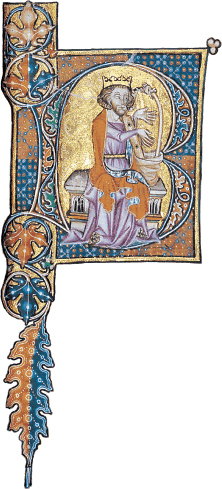As part of his project for the Penn Humanities Forum as an Andew W. Mellon Postdoctoral Fellow, Sidney Marquez Boquiren presents a concert of sacred music for piano. Music will include works by Arvo Pärt, Morton Feldman, Olivier Messiaen, John Luther Adams, and John Cage. Dr. Boquiren will also premiere his own composition, Misang Walang Salita (Mass Without Words), scored for amplified piano, two performers, and electronics, and a new work by H. James Harkins. The works in this concert examine the dynamic and arguably synergistic relation between sound and meaning within a religious and spiritual framework.
Sidney Boquiren studied composition with Michael Schelle at Butler University, where he graduated summa cum laude with his BMus in 1992, on scholarship. He then studied composition with Stephen Jaffe and Scott Lindroth at Duke University and there earned his MA in 1994 and PhD in 1999, on a Mary Duke Biddle Fellowship. While at Duke, he taught musicianship and music theory and served as composer-in-residence at the Durham School of the Arts.
Among his honors are the William Klenz Prize in Composition from Duke University (1994, for Pater Noster), First Prize in the Aliénor harpsichord competition in Atlanta (1994, for Sala’am) and a High Commendation in the competition of the New London Chamber Choir (2000, for Iyeyan [original version]). He has also received an Honorable Mention in the Gaudeamus competition (2001, for a movement from his dissertation, Misa) and the Andrew W. Mellon Postdoctoral Fellowship in the Humanities (2003-04), which enabled a stay at the Penn Humanities Forum, University of Pennsylvania. His music has been performed in Belgium, Germany, Japan, The Netherlands, The Philippines, and the USA, including at the Asian Composers League Festival in Manila (1997) and twice at the Gaudeamus Muziekweek (2000-01). This year he will receive premiere performances of his music in Southeast Asia and Australia.
Christopher Adler is an internationally recognized composer of concert music. Drawing on his extensive background in the traditional musics of Thailand and Laos, he performs original and traditional repertoire on the Northeast Thai mouth organ khaen and on the Thai classical xylophone ranaat ek. He also performs contemporary and Baroque repertoire on piano, pipe organ, and harpsichord. Appearing at such venues as the Bang on a Can Marathon and the Music at the Anthology Festival, he has performed his own compositions with the Seattle Creative Orchestra, members of the string quartet Ethel, the Ciompi Quartet, and with cellists Hugh Livingston and Jonathan Kramer.
Adler is the pianist in the new music ensemble NOISE, and in the improvising ensembles The Christopher Adler Trio and Alan Lechusza's Yellow Chair Ensemble. He took his PhD and Master's degrees in composition from Duke University and Bachelor's degrees in music composition and mathematics from the Massachusetts Institute of Technology. He has studied with Scott Lindroth, Stephen Jaffe, Sidney Corbett, Evan Ziporyn, and Panya Roongruang. He is currently the director of the Music Program and an assistant professor at the University of San Diego, and he has lectured at universities across the United States and Thailand. His improvisations may be heard on 9 Winds Records and Artship Recordings. A compact disc of his compositions will be released by Tzadik in August, 2004.
H. James Harkins was born in 1970 in Washington, DC, and raised in Terre Haute, Indiana. He began composing in earnest at the age of 16, and received a BA in composition in 1993 as a student of Michael Schelle at Butler University, and an MA (1994) and PhD (2001) at Duke University, studying with Scott Lindroth, Stephen Jaffe, and Sidney Corbett. During his graduate studies, he found the twin, and seemingly disparate, passions of underground electronica and meditation. His research into dance music culminated in an essay on the syntax of dance club music and a dissertation, Brightening, for saxophone quartet and electronics, traversing and transgressing several styles of electronic music. He is now using SuperCollider (a free, open-source programming language for real-time sound synthesis, processing, and algorithmic composition in MacOS X and Linux) to create a spiritualized sonic space through live, improvised performance works.
Program
Für Alina (For Alena, 1976)*1 Arvo Pärt (1935)
From Petite esquisses d’oiseaux (Little Bird Sketches, 1985)*2 Olivier Messiaen (1908–1992)
ii. La Merle noir (Blackbird)
iv. La Grive musicienne (Song Thrush)
One (1987)*1 John Cage (1912–1992)
Among Red Mountains (2001)*2 John Luther Adams (1953)
Last Pieces (1959)*1 Morton Feldman 1926-1987
i. Slow. Soft. Durations are free.
ii. Fast. Soft. Durations are free.
iii. Very slow. Soft. Durations are free.
Christopher Adler*2 and Sidney Marquez Boquiren*1, piano ***
Now is your only chance (2004; premiere) H. James Harkins (1970)
Christopher Adler, piano
H. James Harkins, electronics
—Intermission—
Misang Walang Salita (Mass Without Words, 2004; premiere) Sidney Marquez Boquiren (1970)
I. Litania: Paghingi ng Kapatawaran (Litany: Asking for Forgiveness); Kyrie
II. Imno: Pag-alay ng Papuri (Hymn: Offering Praise); Gloria
III. Pagpahayag ng Pananampalataya (Proclamation of Faith); Credo
IV. Aklamasyon: Awit ng Pagkakaisa (Acclamation: Song of Unity); Sanctus
V. Litania: Pagpapatawad ng Mga Kasalanan (Litany: the Forgiveness of Sins); Agnus Dei
Christopher Adler and Sidney Marquez Boquiren, piano H. James Harkins, electronics
—Reception—
Please reserve applause as marked by [***].
This program is sponsored by the University of Pennsylvania’s Penn Humanities Forum (PHF) and the Music Department.
Many thanks to James Primosch, Eugene Lew, Michael Ketner, and Jennifer Conway for their invaluable assistance, and to the members of PHF for their critical and helpful responses to my work, particularly my fellow Mellon Postdoctoral Fellows



